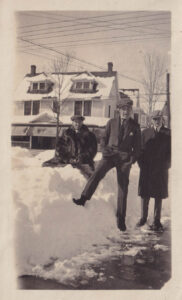Picnic and barbecue safety
With summer here, I find myself getting grilled by families asking about safety precautions they should be taking when they barbecue outside.
I don’t want any backyard fireworks to occur, so let me provide some information on this topic
¯ Keep your children away from a grill and the items around the grill before, during, and after you use it.
¯ Be aware that lighter fluid bottles can look like something your child may want to drink. If they do, serious and life-threatening poisoning can occur. If you think your child may have gotten into lighter fluid or anything else potentially poisonous, please call the New England Regional Poison Center at 1-800-222-1222.
¯ Before cooking, make sure your grill is in good working order. Never test it indoors or in a garage! Follow the directions from the manufacturer on how to use your barbecue or grill equipment and never leave a grill area unattended with or without children around, when it is in use. A great idea is to create a 3-foot child-free zone around the grill.
¯ Wash your hands before handling picnic and barbecue food products.
¯ In preparing food to grill or barbecue, never put cooked food on a dish that was holding raw meat, poultry, or fish.
¯ Bacteria can multiply at between 40- and 140-degrees Fahrenheit, so keep cold food cold in well-insulated coolers with ice packs kept in the shade, and hot foods hot also in insulated containers until they’re ready to be eaten.
¯ Don’t leave food outside for more than two hours to prevent food poisoning. Remember my motto about how long to leave food out at room temperature: When in doubt – throw it out.
¯ Finally, clean up right after the barbecue and not the next day, since children can come across alcoholic beverages or snacking foods left out. This may result in intoxication or a choking episode without an adult being there to supervise, or they can get burned from a barbecue that is still cooling down.
¯ And speaking of getting burned, don’t bury hot coals in the sand at the beach since they can remain hot for up to 24 hours, and a child who runs over that spot can sustain severe burns to their feet.
Hopefully tips like these, and I’m not talking about steak tips, will not make you simmer by helping you prevent summer backyard injuries from occurring the next time you’re out there barbecuing.
——
Lewis First, MD, is Chief of Pediatrics at The University of Vermont Children’s Hospital and Chair of the Department of Pediatrics at the University of Vermont’s Larner College of Medicine. You can also catch “First with Kids” weekly on WOKO 98.9FM and NBC5.


